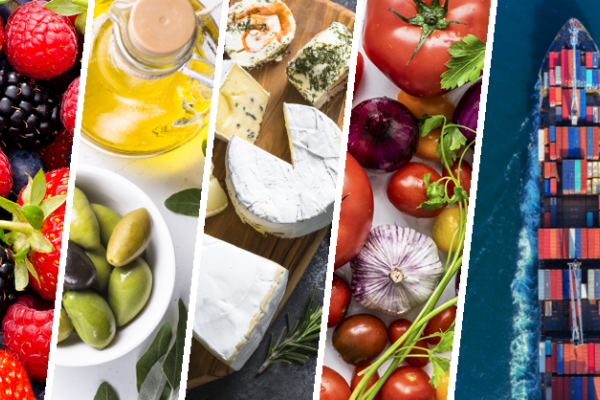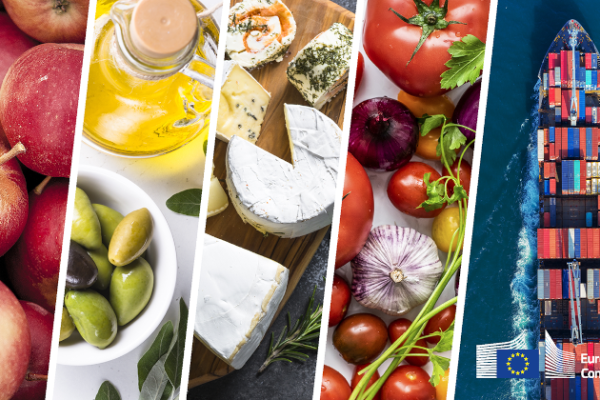Aims of income support for farmers
The European Union provides farmers with income support or 'direct payments' to:
- function as a safety net and make farming more profitable;
- guarantee food security in Europe;
- assist them in the production of safe, healthy and affordable food;
- reward farmers for delivering public goods not normally paid for by markets, such as taking care of the countryside and the environment.
Farmers generally receive income support based on their farm’s size in hectares. All EU countries have to offer a basic payment, a payment for the climate, environment and animal welfare to promote sustainable farming practices (eco-schemes). As it is compulsory for EU countries to provide these payments, they are often referred to as obligatory payments. Eco-schemes are obligatory for EU countries to provide to farmers, but voluntary for farmers.
Additionally, EU countries can choose to offer other payments that focus on specific sectors or types of farming. There are specific schemes designed to provide further help to small and medium sized farms, young farmers, farmers who operate in areas of natural constraint and/or sectors undergoing difficulties.
New CAP: 2023-27
The reform of the common agricultural policy (CAP) applicable for the years 2023-27 was adopted by the European Parliament and the Council of the EU on 2 December 2021.
EU countries implement the new CAP 2023-27 with a CAP Strategic Plan at national level. Each Plan combines a wide range of targeted interventions addressing the specific needs of that EU country and delivers tangible results in relation to EU-level objectives.
The new CAP 2023-27 income support system includes measures to ensure a fairer distribution of financial support for farmers and workers across the EU.

Related information
The basic income support for sustainability (BISS)
Linking support to respect for rules
The EU links the majority of income support for farmers to two main criteria.
-
The farmed hectares, not the quantities produced. Farmers have to respond to market demands in order to increase profit. Decoupling (delinking) payments from the quantity produced avoids overproduction.
-
Respect for the environment, plant health, and animal health and welfare, contributing to sustainable agriculture. This is referred to as 'cross compliance' up to 2022 and changed into an enhanced ‘conditionality’ in the CAP 2023-27. Farmers not complying with EU rules can see their payments reduced or stopped entirely.
Related information
The common agricultural policy (CAP) 2023-27
Why farmers need support
Ensuring food security in Europe is essential and one of the objectives of the CAP, as specified in Article 39 of the Treaty on the Functioning of the European Union (TFEU), is to ensure a fair standard of living for the agricultural community by increasing the individual earnings of farmers. The average farm income remains significantly below average incomes in the rest of the EU economy.
Farming is a risky – and often costly – business. Agriculture is more dependent on the weather and climate than other sectors. There is an inevitable time gap between consumer demand and farmers being able to increase supply as growing more wheat or producing more milk takes time and investment.
EU farmers are under pressure from increasing global trade in food products and trade liberalisation. Developments in global markets increase competition, but also create new opportunities for the European agri-food sector. Additionally, globalisation and fluctuations in supply and demand have made agricultural market prices more volatile in recent years, adding to farmers’ concerns.
These business uncertainties in agriculture, and the importance of ensuring the EU food production, justify the important role the public sector plays in ensuring a safety net for farmers’ income.
Income support in practice
Each year farmers have to submit an aid application declaring all the agricultural parcels on their holding.
While the basic rules governing income support are set at EU level, each EU country implements them on the ground. National authorities are responsible for the administration and control of income support to farmers in their country ('shared management').
Within the EU legal framework, each country also has a certain level of flexibility in the way they grant these payments, to take account of national farming conditions, which vary greatly throughout the EU.
Related information
Conditions for support
In order to receive income support, farmers need to respect several eligibility conditions.
As a general rule, farmers must fulfil a number of criteria.
-
Their farm must be located within the EU.
-
Minimum requirements to receive income support must be met. Income support is not granted for amounts lower than €100 to €500 (depending on the EU country) and/or where the eligible area is less than 0.3 to 5 ha.
-
They must perform an agricultural activity (production, rearing or growing of agricultural products, etc. or maintaining land in a good agricultural state) on agricultural area (encompassing arable land, permanent crops and permanent grassland) that is at their disposal.
-
They must meet the definition of being an 'active farmer'. The requirements are specified by the EU countries and relates to minimum levels of agricultural activity, lists of ineligible economic activities, pluri-active and part-time farmers, and reduction of the administrative burden.
Related information
EU rules on income support to farmers
- 25 EANÁIR 2024
- 27 MEÁN FÓMHAIR 2018
Level of support available
Income support benefits around 6 million farms throughout the EU and often represents an important share of agricultural income. On average, over the last 10 years, income support represented nearly half of farmers’ income.
The level of income support may vary considerably from one farm to another, from one EU country to another or from one region to another.
The EU operates a mechanism called ‘external convergence’ which aims to progressively adjust income support payments per hectare in each country, either upwards or downwards, to bring them closer to the EU average level.
EU countries where the average payment is below 90% of the EU average see an increase in their budget of up to half of the difference between their current rate and 90% of the EU average. Payments are at least EUR 200/ha in 2023 and will increase to EUR 215/ha in 2027.
The cost of income support
For the period 2023-27, the planned EU budget for income support is nearly €188 billion.
Related information
CAP at a glance: how it's paid for
Legal basis
The following rules govern EU income support in agriculture.
- Rules on income support to farmers (Regulation (EU) 1307/2013, Delegated Regulation (EU) 639/2014, Implementing Regulation (EU) 641/2014)
- rules on management, financing and monitoring of the common agricultural policy (Regulation (EU) 1306/2013, Delegated Regulation (EU) 640/2014, Implementing Regulation (EU) 809/2014)
- Rules on support for national CAP strategic plans (Regulation (EU) 2021/2115)
- Rules on certain types of intervention specified by EU countries in their CAP Strategic Plans for the period 2023 to 2027 (Delegated Regulation (EU) 2022/126)
Documents
- 29 MEITHEAMH 2023
- 17 BEALTAINE 2023
- 17 BEALTAINE 2023
- 6 EANÁIR 2023
- 23 IÚIL 2021
- 2 IÚIL 2020
- 16 MEÁN FÓMHAIR 2019
- 15 BEALTAINE 2019
- 27 MEÁN FÓMHAIR 2018
- 27 MEÁN FÓMHAIR 2018
- 27 MEÁN FÓMHAIR 2018
- 27 MEÁN FÓMHAIR 2018
- 24 DEIREADH FÓMHAIR 2018


